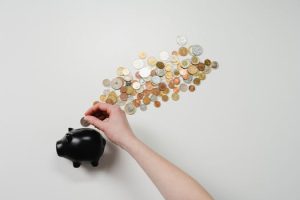Ethical Fashion: The Movement Gaining Momentum
The fashion industry is known for constantly evolving trends and styles, but there is one movement that is gaining momentum in recent years – ethical fashion. More and more consumers are becoming aware of the environmental and social impact of the fashion industry, leading to a shift towards a more sustainable and ethical approach to fashion. In this article, we will explore what ethical fashion is all about, why it’s gaining momentum, and how it is changing the face of the fashion industry.
The Definition of Ethical Fashion
Ethical fashion goes beyond just following the latest trends and styles. It refers to the whole supply chain of fashion, from the sourcing of raw materials to the production, distribution, and consumption of clothing. Ethical fashion encompasses fair wages and working conditions for garment workers, the use of sustainable and environmentally-friendly materials, and the reduction of waste and pollution in the fashion industry.
The Need for Ethical Fashion
The fashion industry has a significant impact on the environment and the people involved in its production. According to a report by the Global Fashion Agenda, the fashion industry is responsible for 92 million tons of waste per year and is the second largest consumer of water. In addition, the fast fashion model of constantly producing and consuming cheap, low-quality clothing has led to exploitation of garment workers, particularly in developing countries where labor laws are weak. This has sparked a need for change in the way fashion operates.
The Rise of Ethical Fashion Brands
In recent years, there has been a significant increase in the number of ethical fashion brands. These brands focus on producing high-quality, sustainable and socially responsible clothing. They prioritize transparency in their supply chain, ensuring that workers are treated fairly and that their materials are sourced sustainably. Some notable brands in this space include Patagonia, Everlane, and Reformation.
The Role of Consumers
The rise of ethical fashion brands can be attributed to the increasing demand from consumers for sustainable and socially responsible products. With the rise of social media, consumers are more aware of the impact of their fashion choices and are actively seeking out brands that align with their values. In a survey by Nielsen, 66% of global respondents said they are willing to pay more for sustainable brands, showing that consumers are willing to put their money where their values are.
The Impact of Ethical Fashion on the Industry
The rise of ethical fashion is causing a shift in the fashion industry. Luxury fashion houses are starting to prioritize sustainability and social responsibility, and fast fashion retailers are facing pressure to change their unsustainable practices. The fashion industry as a whole is becoming more transparent and accountable for its impact on the environment and workers. This change is not only beneficial for the planet and people, but also for the industry itself in the long run.
The Future of Ethical Fashion
The growth of ethical fashion is showing no signs of slowing down. As consumers continue to demand more sustainable and socially responsible products, the industry will have to adapt in order to survive. This includes implementing more ethical and sustainable practices, such as using organic or recycled materials, reducing waste and carbon footprint, and ensuring workers are paid fair wages and have safe working conditions.
Ethical fashion is not just a trend, but a movement that is gaining momentum and bringing about positive change in an industry that has long been criticized for its negative impact. As consumers, we have the power to support this movement and push for a more sustainable and ethical fashion industry. By choosing where we spend our money and being more conscious of our fashion choices, we can contribute to a better future for both the planet and the people involved in the fashion industry.










